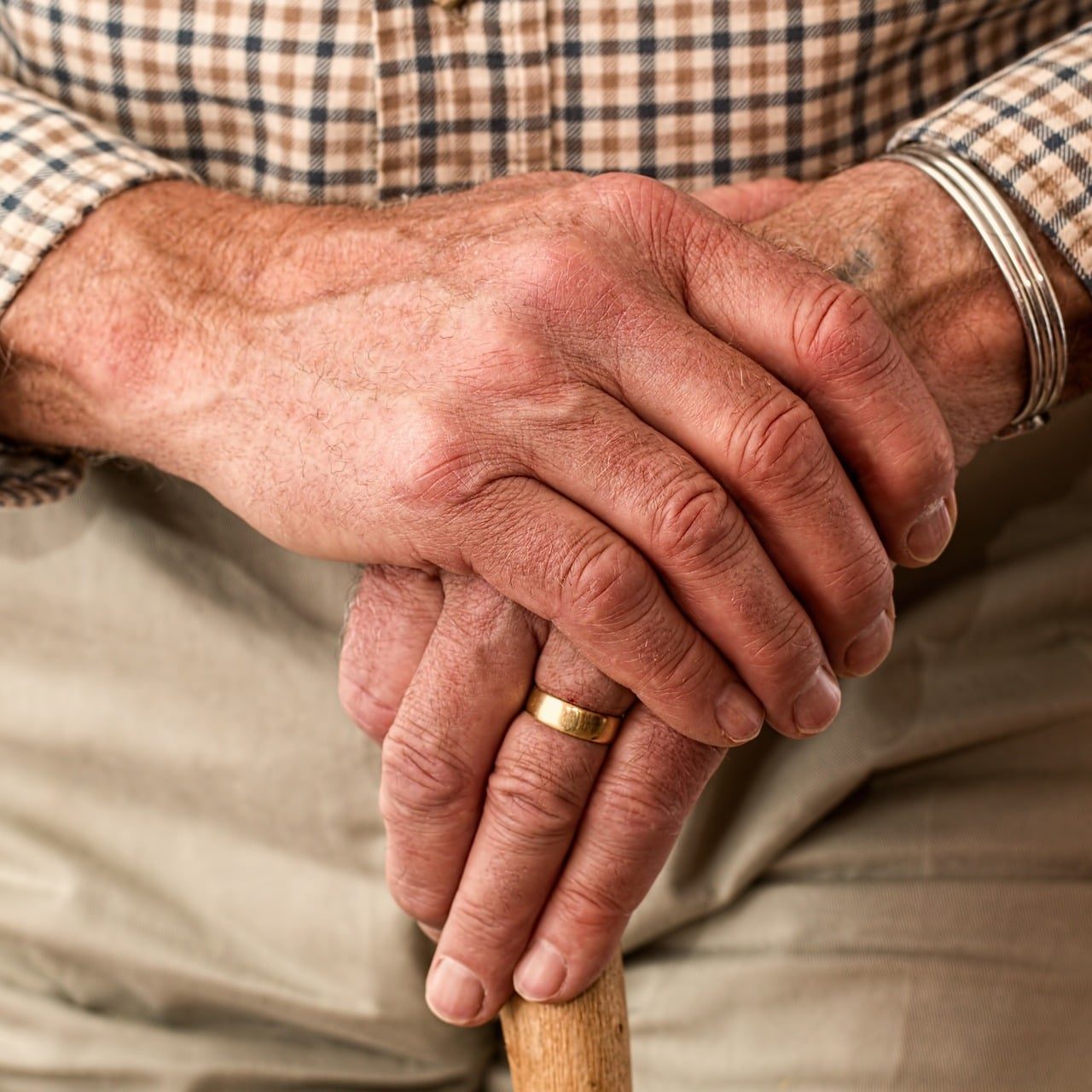Why Choose Dementech For Atypical Parkinsonism Treatment?
- Our clinic is home to the UK’s leading Atypical Parkinsonism specialists, meaning you’ll be under the care of some of the best Parkinson’s doctors in the country
- State-of-the-art technology allows us to diagnose your condition faster and more accurately
- Same day consultations and assessments for maximum convenience and early intervention treatment
- Prices for an hour-long consultation start at £515. Each follow up appointment will cost £325. We always maintain full transparency about our costs.
- Offering unbeatable quality of care with access to clinical trials and industry-leading technology
- Ongoing support for patients and their families with private Patient Advisors and tailor-made care plans

Our Services

Neurology
Services

Psychiatry
Services

Psychology
Services

Diagnostic
Services

What is Atypical Parkinsonism?
Atypical Parkinsonism is the term for a group of conditions that display similar symptoms to Parkinson’s Disease. Patients suffer from motor and coordination issues, as well as uncontrollable tremors and stiffness. It is most common in people over 50. Whilst most of the symptoms mirror those of Parkinson’s, Atypical Parkinsonism comes with a few other symptoms that aren’t as common in Parkinson’s Disease.
The main difference between Atypical Parkinsonism and Parkinson’s disease lies in what happens in the brain. A patient with Parkinson’s disease will experience a loss of neurons that produce a chemical involved in movement, but while there are fewer of these neurons, the receptors for this chemical remain. In contrast, patients with Atypical Parkinsonism may also lose these receptors, which could contribute to more progressive symptoms and a reduced response to standard Parkinson’s treatments.
Currently there is no cure for Atypical Parkinsonism, and there is no medication that can slow it down. However, certain types of treatments can help patients manage the symptoms of the condition for as long as possible - and early intervention is essential for this to be successful. At Dementech Neurosciences, we have a team of the world’s leading Parkinson’s Disease specialists who are experts in diagnosing Atypical Parkinson’s diseases, as well as providing access to cutting edge treatment options to help you manage your condition.
Our Happy Patients
Friendly welcoming reception, the expertise is evident, but most of all the people who work there are warm and supportive.A Mohamed
Amazing service! Took care of every single need I had and made sure I felt comfortable through out the whole process!J Rabhi
Same Week Consultations
Early intervention is often the key to managing Atypical Parkinsonism, which is why we always strive to offer same-week consultations where possible.
Same Week Assessment
When you attend the Dementech clinic, you will be met by one of our Atypical Parkinsonism specialists and undergo an assessment immediately, followed by advanced tests.
Patient Advisor Consultations
You will be assigned a Patient Advisor who will go through your treatment plan and provide support and guidance to both patients and caregivers.
Prices Starting at £515
Prices for an hour-long consultation start at £515. Each follow up appointment will cost £325. We always maintain full transparency about our costs.
Video Consultations Available
For patients who can’t make it into the clinic, our consultants can carry out a video consultation over Facetime, Skype, or WhatsApp.
Atypical Parkinsonism Symptoms
Atypical Parkinsonism refers to a number of different conditions which all have their own symptoms. The effects a patient has to deal with will depend on what area of the brain is being affected and what is happening.
The most common types of Atypical Parkinsonism are:
- Multiple system atrophy (MSA)
MSA can result in problems with multiple bodily functions such as speech, movement, balance, blood pressure and bladder control.
- Progressive supranuclear palsy (PSP)
PSP symptoms include loss of balance, falls (often backwards), stiffness and difficulties with vision, speech and swallowing. Eye problems cause difficulty in looking up or down, focusing, double or tunnel vision and dislike of bright lights. Some people can also experience behavioural and cognitive changes including depression and apathy.
- Corticobasal degeneration (CBD)
CBD causes gradually worsening difficulties with movement, speech, memory and swallowing. Some patients will experience an involuntary stiffening, twisting or contraction of the affected limb called dystonia.
There may be uncontrolled jumping of the limb when it is tapped gently or when the patient is startled, called myoclonus. People with CBD often complain that the affected limb feels like it is not a part of their body, a sensation called alien limb.
- Vascular Parkinsonism (VP)
Patients with VP mostly find that their lower limbs are affected by their condition, with gait issues being among the most prominent. They may shuffle or freeze as they walk, and they may also struggle with their posture.
On top of this, they may develop dementia quickly, become incontinent, and lose the ability to control their facial muscles.
- Dementia with Lewy bodies (DLB)
DLB causes rapid cognitive impairment, with patients often suffering from hallucinations and delusions, an inability to exercise good judgement or problem solving skills, feelings of apathy, drowsiness, mood changes, and sleep disorders.

Multiple system atrophy (MSA)
MSA can result in problems with multiple bodily functions such as speech, movement, balance, blood pressure and bladder control.
Progressive supranuclear palsy (PSP)
PSP symptoms include loss of balance, falls (often backwards), stiffness and difficulties with vision, speech and swallowing. Eye problems cause difficulty in looking up or down, focusing, double or tunnel vision and dislike of bright lights. Some people can also experience behavioural and cognitive changes including depression and apathy.
Corticobasal degeneration (CBD)
CBD causes gradually worsening difficulties with movement, speech, memory and swallowing. Some patients will experience an involuntary stiffening, twisting or contraction of the affected limb called dystonia.
There may be uncontrolled jumping of the limb when it is tapped gently or when the patient is startled, called myoclonus. People with CBD often complain that the affected limb feels like it is not a part o
Vascular Parkinsonism (VP)
On top of this, they may develop dementia quickly, become incontinent, and lose the ability to control their facial muscles.
Patients with VP mostly find that their lower limbs are affected by their condition, with gait issues being among the most prominent. They may shuffle or freeze as they walk, and they may also struggle with their posture.
Dementia with Lewy bodies (DLB)
DLB causes rapid cognitive impairment, with patients often suffering from hallucinations and delusions, an inability to exercise good judgement or problem solving skills, feelings of apathy, drowsiness, mood changes, and sleep disorders.

Diagnosing Atypical Parkinsonism
Due to the fact Atypical Parkinsonism mirrors the symptoms of Parkinson’s disease, it’s often misdiagnosed. Therefore, specialist guidance is required throughout diagnostic procedures.
Patients with Atypical Parkinsonism generally find that symptoms start on both sides of their body, whereas with Parkinson’s disease, it’s more likely that patients begin to notice changes in one side first. Another key difference between the two is that patients with Atypical Parkinsonism will experience the onset of things like dementia, hallucinations, or falling over earlier on than patients with PD, but this depends on the type of Atypical Parkinsonism the patient has.
Atypical Parkinsonism doesn’t respond to PD medication or treatments, which means different medications and plans need to be drawn up. The goal is to manage the symptoms, but the effectiveness of that relies on an accurate diagnosis.
At Dementech Neurosciences, we have a team of leading Atypical Parkinsonism specialists who will assess you at your initial consultation. They will ask questions about your symptoms, as well as your medical history. You may also be asked to do basic coordination tasks. This is so they can identify any motor issues to make for a more accurate diagnosis.
You will then undergo tests in our cutting edge neurology lab, such as an MRI scan. This will give our consultants a better idea of what is happening in your brain and what could be causing your symptoms. You may also have to have some blood tests.
By using the latest diagnostic imaging technology, we are able to get your results back within two days, meaning we can diagnose you and start early intervention treatment in less than a week from your first consultation with us.
How to Treat Atypical Parkinsonism
At present, there is no cure for Atypical Parkinsonism, and there is no way to slow the symptoms down or prevent early progression. The aim of treatment is to allow you to manage your symptoms for as long as possible. At Dementech Neurosciences, we have a team of Parkinson’s experts and we offer a wide range of clinical and therapeutic treatments.
The exact type of treatment you undergo will largely depend on the type of Atypical Parkinsonism you have. Some of the common treatments may include:
- Physiotherapy: This is a good option for people who struggle to walk or move and can help maintain balance and stability
- Antidepressants: Patients with Atypical Parkinsonism may develop depression or anxiety, so antidepressants can help to stabilise their mood
- Speech therapy: If you struggle to communicate, swallow, or talk, you may see one our speech therapists who can help you strengthen muscles responsible for talking and swallowing
- Diet changes: For those who have problems swallowing, our in-house dietician can work with you to provide effective diet changes that minimise the risk of choking
Your consultant and Patient Advisor will work with you to develop the best treatment plan, taking care to coordinate it across the board to effectively manage as many of your symptoms as possible.
Clinical Trials & Other Support
In addition to the treatments above, we can also put you forward to clinical trials that test new novel drugs that are not open to the public, further expanding your care options in the hope of giving you the best possible outcome.
Support and guidance for patients and caregivers are part of the treatment at Dementech. We understand the toll an Atypical Parkinsonism diagnosis can have, so we make every effort to answer all your questions and get caregivers involved in treatment so they have a better understanding of the situation.

Get Atypical Parkinsonism Support Today
Meet Our Doctors
Our team of Atypical Parkinsonism experts in London provide expert care to diagnose, manage and treat Atypical Parkinsonism symptoms.
Prof. K. Ray Chaudhuri – Parkinson’s Specialist in London
Medical & Scientific Advisory Board
Neurologist
Parkinson's Disease
Dr Tahira Choudry – Consultant Neurologist
Epilepsy
Movement Disorders
Neurologist
Parkinson's Disease
Private Neurology
Dr Nikolay Dimitrov – Consultant Neurologist in London
Movement Disorders
Neurologist
Parkinson's Disease
Private Neurology
FAQs About Atypical Parkinsonism
What is Atypical Parkinson's Disease?
Atypical Parkinson’s disease refers to Parkinsonian disorders that do not fit the typical clinical profile of idiopathic Parkinson’s disease. Some common examples of atypical Parkinson’s include Parkinson’s plus syndrome, multiple system atrophy (MSA), progressive supranuclear palsy (PSP), corticobasal degeneration (CBD), and Lewy body disease.
What is the difference between typical and atypical Parkinson's?
Atypical Parkinsonian disorders are progressive diseases that present with some of the signs and symptoms of Parkinson’s disease, but that generally do not respond well to drug treatment.
What are the symptoms of Atypical Parkinson's Disease?
The symptoms of atypical Parkinson’s can vary depending on the specific condition, but some common ones include: difficulty with balance and coordination, stiffness, tremors, changes in speech and swallowing, and behavioral and cognitive changes.
What is the treatment for Atypical Parkinson's Disease?
There is currently no cure for atypical Parkinson’s disease, but there are treatments available to manage the symptoms. These may include medications, physical therapy, speech therapy, and occupational therapy. In some cases, deep brain stimulation may also be recommended.
What is the prognosis for Atypical Parkinson's Disease?
The prognosis for atypical Parkinson’s disease can vary depending on the specific condition and the individual. Some forms of atypical Parkinson’s disease can progress more rapidly than others, and the symptoms can be more severe for individuals. Regular medical follow-up and symptom management are essential for maintaining a good quality of life.
How quickly can testing be done for Atypical Parkinson's?
We carry out tests within two days of them being requested, and we will get the results back within 48 hours.
What does the consultation entail?
During a consultation, we will carry out an assessment and go through your medical history with a view to getting a diagnosis. From there, you will receive a full consultation report and treatment plan for Atypical Parkinsonism.
How quickly can I be seen?
Where possible, we aim to see Atypical Parkinson’s patients the same week. We wil respond to your request within 24 hours (48 hours on weekends).

Have a Question?
Speak to Atypical Parkinsonism Specialists From Our Clinic in London
Our team is on hand to answer any questions or concerns that you may have. Simply fill in the form below with your details, and we will get back to you as soon as possible.
Contact Dementech Today to Discuss Atypical Parkinsonism Support



